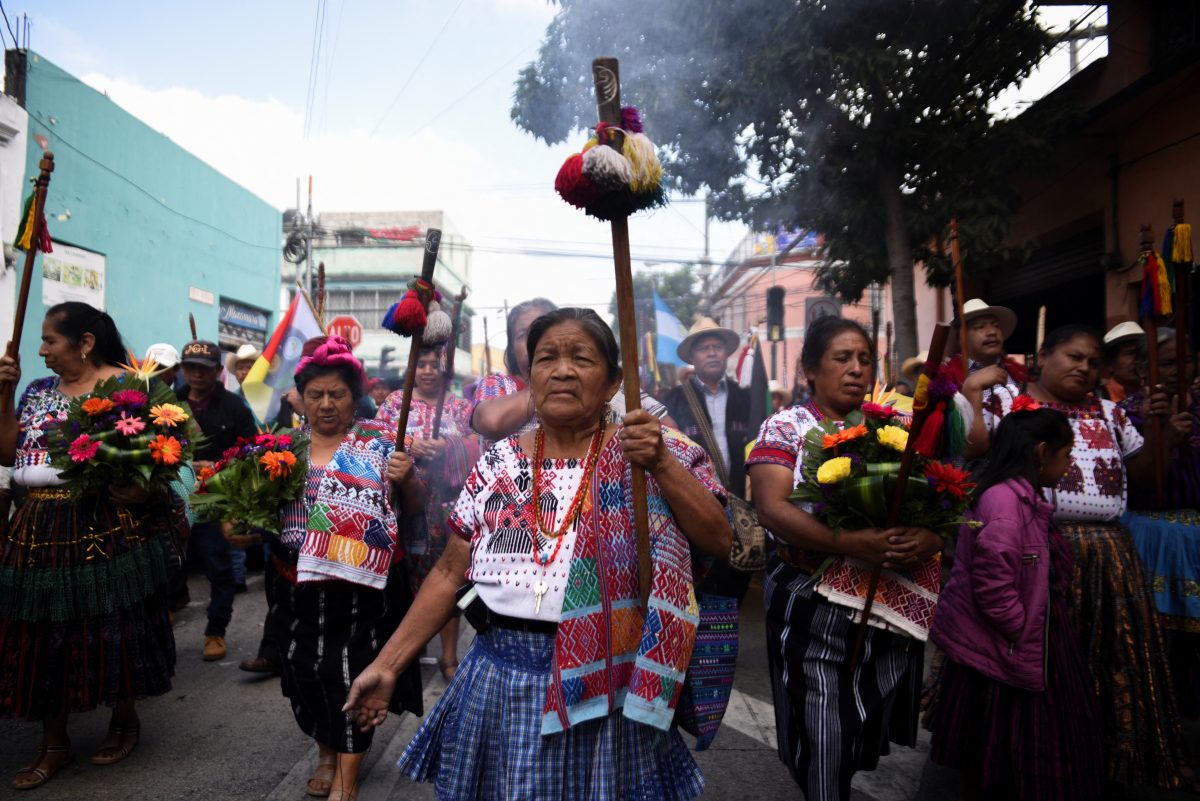GUATEMALA CITY, (Reuters) – Guatemala’s Congress resumed its session today after an hours-long delay to the inauguration of Guatemalan President-elect Bernardo Arevalo and new lawmakers, a holdup that stoked tensions in the Central American nation.
Demonstrators pushed through barricades and were threatening to storm Guatemala’s Congress after the delay to first induct Congressional lawmakers Sunday morning.
By the time the inauguration of Arevalo and Vice President-elect Karin Herrera was due to begin at 3 p.m. local time, the first session still had not started,heightening fears Arevalo’s opponents were trying to scupper the transition of power.
Although the session resumed around 6 p.m. local time, it was not immediately clear whether the inauguration would proceed as planned.
Arevalo, warning that an attempt was being made to violate democracy, earlier urged the lawmakers to “respect the popular will expressed at the polls”.
“The Guatemalan people and the international community are watching,” he added.
The presence of police with riot gear was growing on the streets.
Arevalo’s Semilla party sent a message on social media platform X at 4 p.m. saying Arevalo was officially the president of Guatemala, though the message appeared to be deleted several minutes later.
A spokesperson for Semilla told Reuters that Arevalo was at a hotel in Guatemala City.
The delay began after Guatemala’s top court earlier on Sunday decided that Semilla party lawmakers would not take office affiliated with their party but as independents, sparking a power struggle within Congress. The move blocks them from joining Congress’ board of directors and weakens the new president’s ability to wield power.
Late on Sunday the court said it would meet again on Monday to discuss the issue.
U.S. aid chief Samantha Power said there was “no question” that Arevalo is the president of Guatemala and called on all sides to remain calm.
Taiwan, which maintains diplomatic ties with Guatemala, said in a statement by its foreign ministry that it “clearly” recognizes Arevalo and Herrera as the president and vice president of the country.
Honduran Foreign Minister Enrique Reina called for Arevalo’s inauguration to be respected on a message shared on X, saying he made the statement on behalf of the delegations present in Guatemala, including from the Organization of American States (OAS) and the European Union.
“The Guatemalan people expressed their democratic will in fair, free and transparent elections, endorsed by the international community through its electoral observation missions. That will must be respected,” Reina said.
CONTINUED ATTACKS
Vowing to restore democracy and banish deep-rooted corruption in Guatemala, the most populous country in Central America with 17.1 million people, Arevalo, 65, won the August presidential run-off in a sweeping victory.
In the months after, Guatemala’s attorney general – seen as an ally of outgoing President Alejandro Giammattei – has intensified attempts to discredit Arevalo’s victory and hinder his transition.
The attorney general has tried to strip Arevalo and his Vice President-elect Karin Herrera of legal immunity, suspend his Semilla party and annul the election. The “coup” attempt, as Arevalo terms it, has drawn tens of thousands of Guatemalans to the streets.
The international community, including the United States, has piled vast pressure on Giammattei’s administration to proceed with the transition of power.
Last month the U.S. government imposed additional visa restrictions on nearly 300 Guatemalan nationals including 100 lawmakers out of the 160-member unicameral Congress, accused of undermining democracy in the Central American nation.
The events leading up to Arevalo’s inauguration underscore Guatemala’s fragile rule of law, with the country pushed to the brink of a governance crisis that could limit his ability to rule and keep campaign pledges to root out bad political actors, fight organized crime and create new jobs.
Despite its overwhelming victory in the presidential elections, Semilla – a social democratic, environmentalist and progressive party – barely won 23 of the 160 seats in the legislature.
That makes Arevalo more vulnerable to ongoing political attacks, experts said.
“Actions to criminalize Arevalo and other members of the party could continue,” said Ana Maria Mendez, Central America director of the Washington Office on Latin American Affairs (WOLA), a rights group.
The attorney general’s office has denied that it is attempting a coup and defended its actions as within the framework of Guatemala’s laws.






